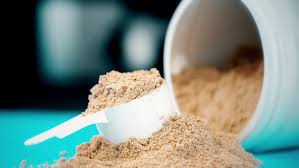
The Importance of Protein Powder Safety
With the growing popularity of protein powders for fitness and health, ensuring their safety is more crucial than ever. Protein powders are commonly used by athletes, fitness enthusiasts, and those looking to supplement their diets. Recent findings from Consumer Reports have raised alarming concerns regarding the presence of lead in various protein powder products.
Consumer Reports Findings
In an extensive investigation published in October 2023, Consumer Reports analyzed 30 protein powder brands, including popular names like Herbalife, Orgain, and Muscle Milk. The report indicated that several of these products contained lead levels exceeding the California state threshold of 0.5 micrograms per serving.
The investigation highlighted that lead can be harmful even in small amounts, potentially affecting health, especially in young children, pregnant women, and individuals with compromised immune systems. According to the Consumer Reports study, some protein powders were found to have lead levels as high as 15.3 micrograms per serving, significantly above the recommended limits.
Health Implications of Lead Exposure
Exposure to lead is associated with several health issues, including developmental delays in children, cardiovascular problems, and cognitive impairment in adults. This raises significant concerns for consumers who regularly use these products to enhance their health and fitness.
Industry Response
In response to the report, many protein powder manufacturers have stated their commitment to safety and have launched their internal testing protocols. Some companies are now seeking third-party certifications to verify that their products meet stringent safety standards.
However, critics argue that self-regulation may not be sufficient and have called for stricter regulations regarding ingredient testing within the dietary supplement industry. The Food and Drug Administration (FDA) has been urged to take a more active role in monitoring and regulating the substances contained in protein powders.
Consumer Recommendations
Given these concerns, Consumer Reports has advised consumers to be vigilant and read labels carefully before purchasing protein powders. They recommend choosing products that have been independently tested for contaminants, including lead. Additionally, consumers can opt for brands that provide transparency about their sourcing and manufacturing processes.
Conclusion
The findings from Consumer Reports underscore the importance of consumer awareness regarding the safety of protein powders. While these supplements can provide benefits for muscle recovery and overall health, consumers must be cautious about potential contaminants. As the industry evolves in response to these findings, better safety standards and regulations could lead to safer consumer products in the future.



